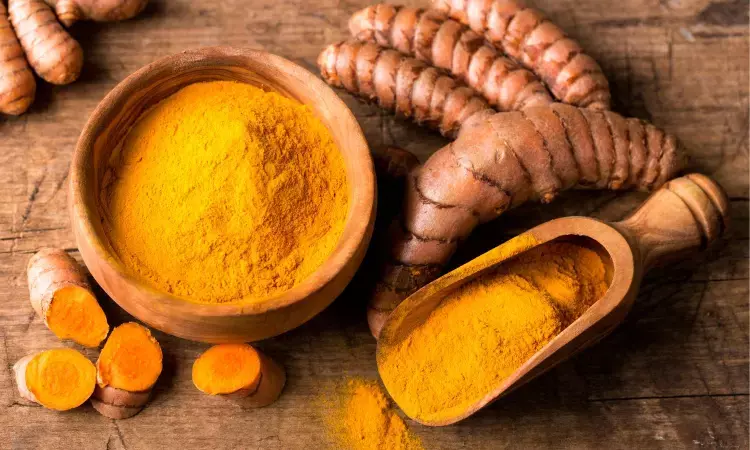- Home
- Medical news & Guidelines
- Anesthesiology
- Cardiology and CTVS
- Critical Care
- Dentistry
- Dermatology
- Diabetes and Endocrinology
- ENT
- Gastroenterology
- Medicine
- Nephrology
- Neurology
- Obstretics-Gynaecology
- Oncology
- Ophthalmology
- Orthopaedics
- Pediatrics-Neonatology
- Psychiatry
- Pulmonology
- Radiology
- Surgery
- Urology
- Laboratory Medicine
- Diet
- Nursing
- Paramedical
- Physiotherapy
- Health news
- Fact Check
- Bone Health Fact Check
- Brain Health Fact Check
- Cancer Related Fact Check
- Child Care Fact Check
- Dental and oral health fact check
- Diabetes and metabolic health fact check
- Diet and Nutrition Fact Check
- Eye and ENT Care Fact Check
- Fitness fact check
- Gut health fact check
- Heart health fact check
- Kidney health fact check
- Medical education fact check
- Men's health fact check
- Respiratory fact check
- Skin and hair care fact check
- Vaccine and Immunization fact check
- Women's health fact check
- AYUSH
- State News
- Andaman and Nicobar Islands
- Andhra Pradesh
- Arunachal Pradesh
- Assam
- Bihar
- Chandigarh
- Chattisgarh
- Dadra and Nagar Haveli
- Daman and Diu
- Delhi
- Goa
- Gujarat
- Haryana
- Himachal Pradesh
- Jammu & Kashmir
- Jharkhand
- Karnataka
- Kerala
- Ladakh
- Lakshadweep
- Madhya Pradesh
- Maharashtra
- Manipur
- Meghalaya
- Mizoram
- Nagaland
- Odisha
- Puducherry
- Punjab
- Rajasthan
- Sikkim
- Tamil Nadu
- Telangana
- Tripura
- Uttar Pradesh
- Uttrakhand
- West Bengal
- Medical Education
- Industry
Curcumin and PPIs have comparable efficacy for functional dyspepsia

Functional dyspepsia is one of the major causes of upper abdominal discomfort. The condition affects 5-10% of the world population. Nearly 50 % of the patients seek alternative treatments to manage the condition. A recent study published in BMJ Evidence-Based Medicine has demonstrated the potential of curcumin in treating patients with functional dyspepsia. Researchers in this study proved efficacy to be “comparable” for curcumin and omeprazole, a proton pump inhibitor.
In this double-blind, randomised trial, researchers evaluated the efficacy of curcumin compared with omeprazole for managing functional dyspepsia. 206 patients were treated with curcumin, omeprazole, or curcumin plus omeprazole. There was significant improvement in the three groups. No significant differences among the three groups related to symptom improvement were recorded. Synergism was not reported between omeprazole and curcumin.
The study was conducted in Thai traditional medicine hospitals, district hospitals, and university hospitals in Thailand. Participants included had a diagnosis of functional dyspepsia. Intervention included curcumin alone (C), omeprazole alone (O), or curcumin plus omeprazole (C+O). The combination group patients received two capsules of 250 mg curcumin four times daily and one capsule of 20 mg omeprazole once daily for 28 days.
The severity of Dyspepsia Assessment (SODA) score was used to measure the functional dyspepsia symptoms on days 28 and 56. Secondary outcomes included adverse events and serious adverse events.
Key results of the study are:
- One hundred fifty-one participants completed the study.
- Demographic data, clinical characteristics and baseline dyspepsia scores were comparable between the three groups.
- There were Significant improvements in SODA scores on day 28 in pain (−4.83, –5.46 and −6.22), non-pain (−2.22, –2.32 and −2.31) and satisfaction (0.39, 0.79 and 0.60) categories for the C+O, C, and O groups, respectively.
- On day 56, these improvements were enhanced in pain (−7.19, –8.07 and −8.85), non-pain (−4.09, –4.12 and −3.71) and satisfaction (0.78, 1.07, and 0.81) categories in three groups.
- No significant differences or serious adverse were reported.
Concluding further, this study found the presence of comparable efficacy between Curcumin and omeprazole for functional dyspepsia.
We found no obvious synergistic effect between curcumin and omeprazole, they noted.
Reference:
Kongkam P, et al Curcumin and proton pump inhibitors for functional dyspepsia: a randomised, double-blind controlled trial BMJ Evidence-Based Medicine Published Online First: 11 September 2023. doi: 10.1136/bmjebm-2022-112231
BDS, MDS in Periodontics and Implantology
Dr. Aditi Yadav is a BDS, MDS in Periodontics and Implantology. She has a clinical experience of 5 years as a laser dental surgeon. She also has a Diploma in clinical research and pharmacovigilance and is a Certified data scientist. She is currently working as a content developer in e-health services. Dr. Yadav has a keen interest in Medical Journalism and is actively involved in Medical Research writing.
Dr Kamal Kant Kohli-MBBS, DTCD- a chest specialist with more than 30 years of practice and a flair for writing clinical articles, Dr Kamal Kant Kohli joined Medical Dialogues as a Chief Editor of Medical News. Besides writing articles, as an editor, he proofreads and verifies all the medical content published on Medical Dialogues including those coming from journals, studies,medical conferences,guidelines etc. Email: drkohli@medicaldialogues.in. Contact no. 011-43720751


